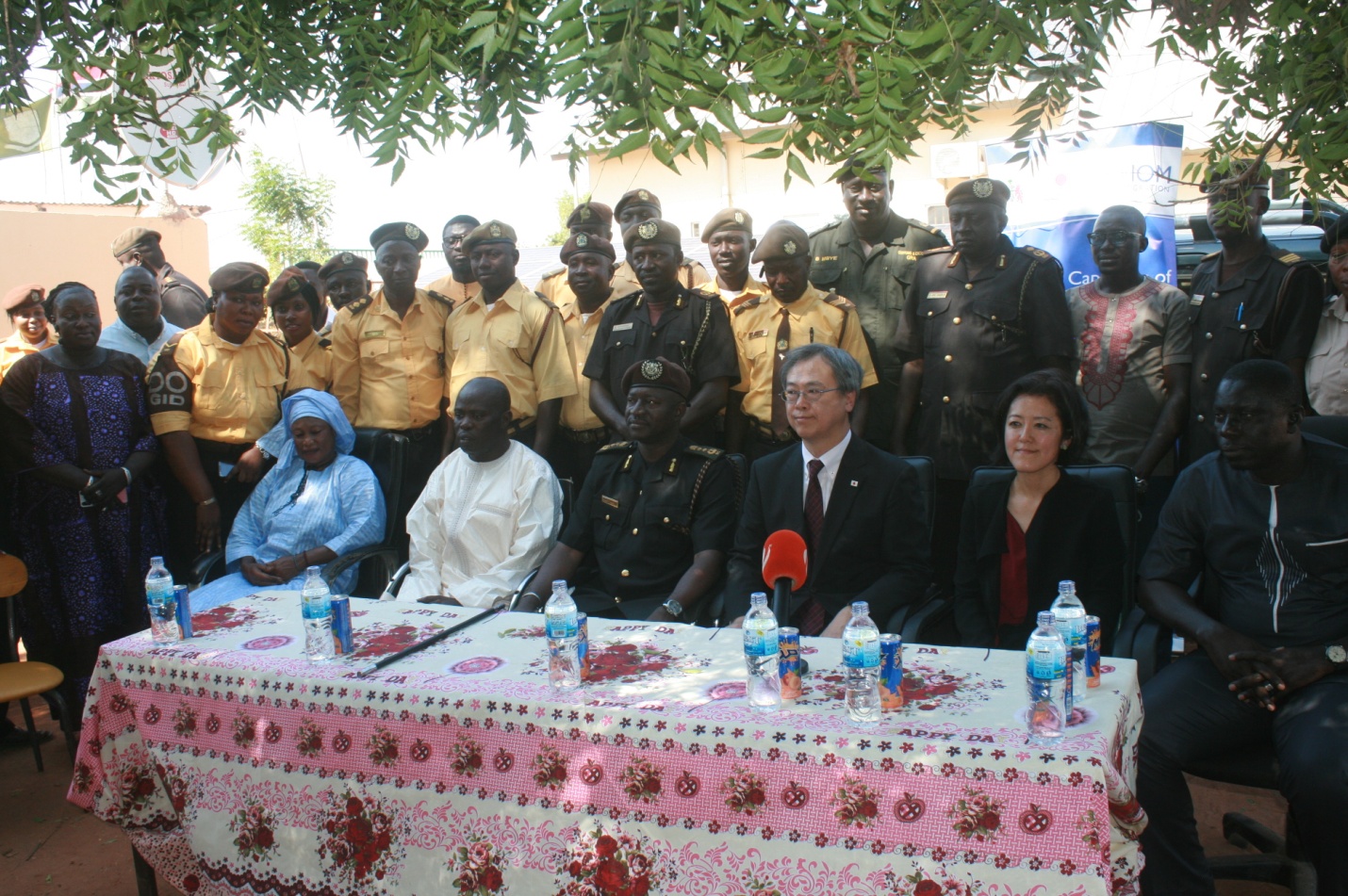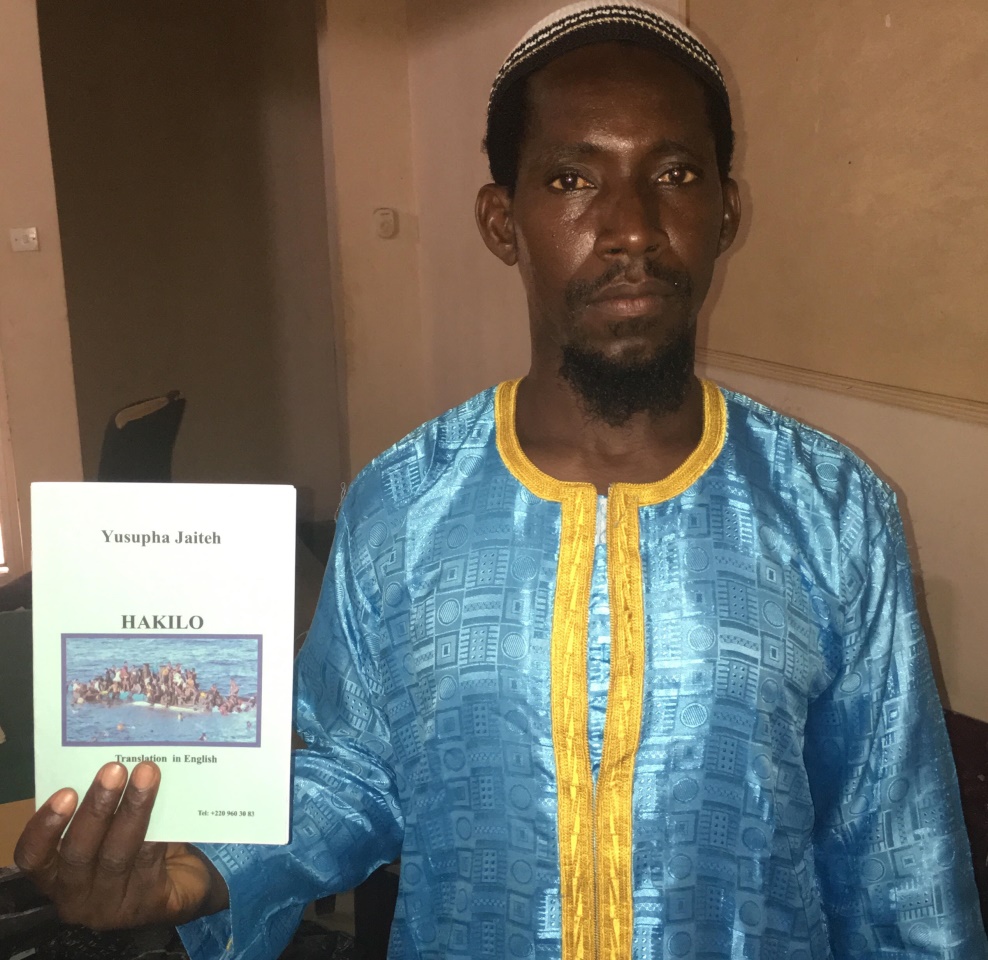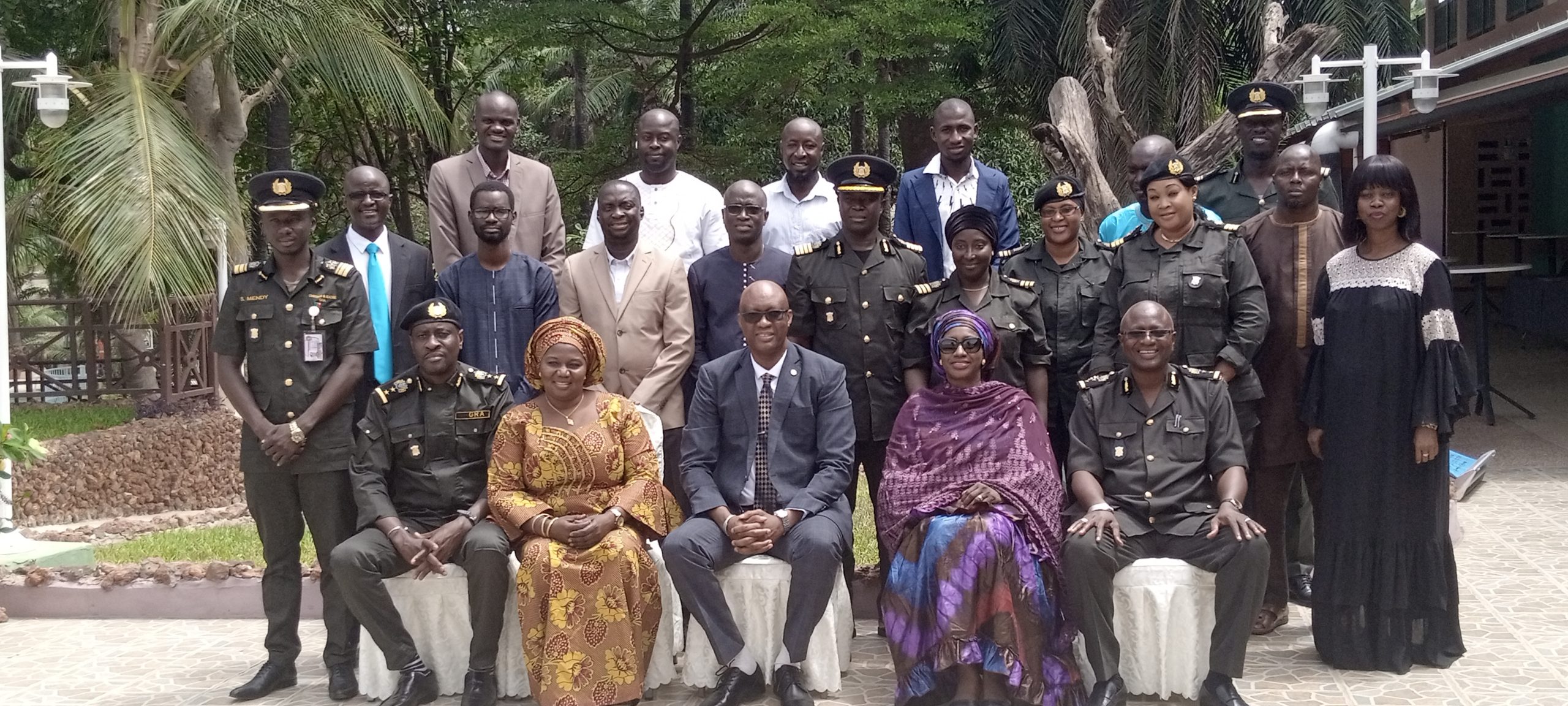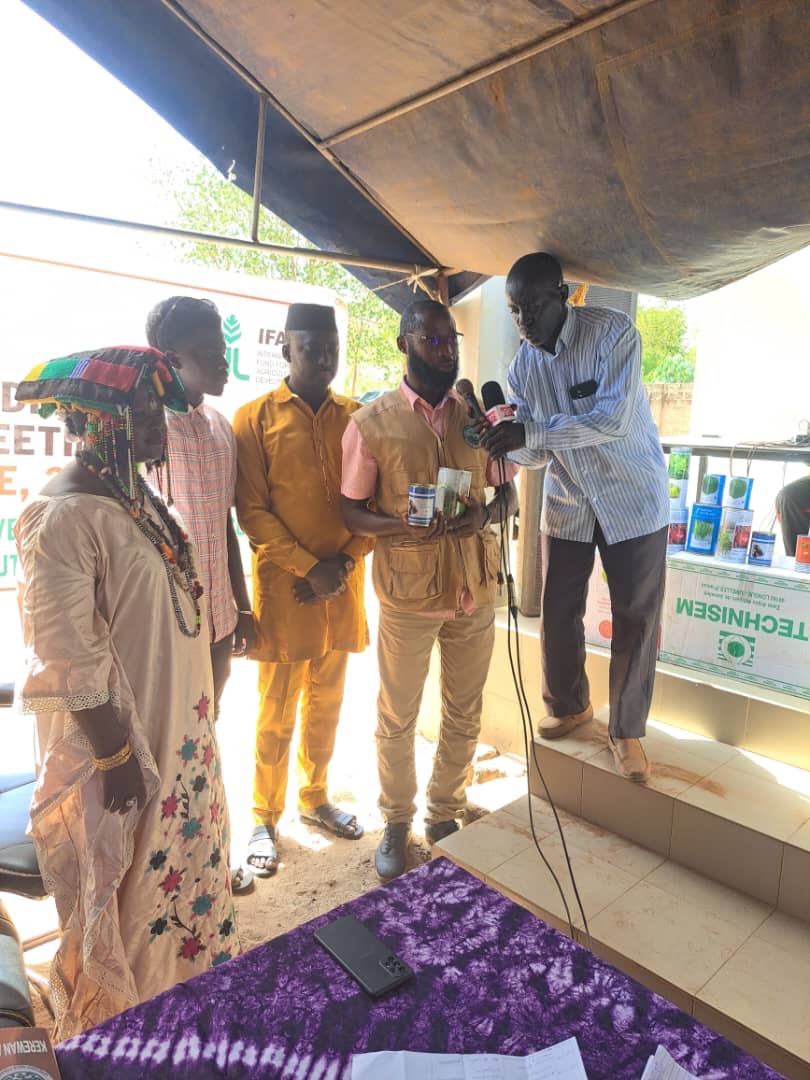By Yunus S Saliu
The Ambassador of Japan to The Gambia based in Dakar Senegal, Thursday, visited The Gambia for a two-day working visit.
The two days – Thursday and Friday, working visit was used by the ambassador to visit and see the work/project that International Organisation for Migration (IOM) and the Gambia Immigration Department (GID) have achieved in improving the operational capacities and physical infrastructure of border posts in the North Bank Region (NBR).
Among other activities during Ambassador Arai Tatsuo visit to the country included inspection of Amdallai border post, Kerr Ali border post, handing over of renovated work and solar PV installation, having bilateral meeting with government officials – Minister of Interior and others, meeting with the established interagency border coordination committee, presentation of the strategic plan for the Gambia Immigration Department.
The project title ‘Enhancing Capacities of The Gambia’s Local and Central Governments to Manage Borders and Contribute to Trade Facilitation Community and Economic Development’ was fully funded by the Government and People of Japan and jointly implemented by the IOM and GID. The $1,000,000 project duration is from 31st March 2019 to 30th March 2020.
The project was used to strengthened physical infrastructure and equipment at four main border posts of The Gambia; increased capacity and better facilities for immigration control of passenger traffic and strengthened customs inspections for goods and vehicle transit.
Also it was used to improved cross-border coordination to enhance border security, cooperation and economic development in the border regions of The Gambia and Senegal, enhanced capacity of health system and border management services and as well strengthened cooperation between local government actors in facilitation cross-border trade as a means to promote local economic development.
Speaking at the three days training for the border personnel on Enhancing Capacities of The Gambia’s Local and Central Governments to Manage Borders and Contribute to Trade Facilitation, Community, and Economic Development, Ambassador Arai Tatsuo expressed his happiness to participate in the visited sites and the closing ceremony of the project’s training.
He outlined the importance of trade facilitation to the African countries and The Gambia. This included increase in benefits from free trade, its contribution to economic growth and poverty reduction. He noted that it can as well held country to reduce trade cost and increase competitiveness of the private sector.
The ambassador disclosed that free trade provide more opportunities for people, producers can offer their goods and services to more customers while “customers have more choices,” as African continental trade agreement came into force on May 2019.
He noted that the agreement is an opportunity for the country and companies to help each other grow as they have done in other regions.
However, he said, facilitating trade may bring about some challenges as migration management can become an increasingly complex area of governance, un-regularize movement in an out of the country will remains a critical concern in the Gambia and its neighbor.
Therefore, he said, management of the borders between the Gambia and its neighbor will need to be substantially improved.
He established the fact that The Gambia is expected to defend and protect its territory but cumbersome procedures and lack of information among the local authorities or else are major impediment. Therefore, “number of reforms must be done such as international one to meet the customs system and streaming of border procedures like modernization of border crossing facilities and streamlining border procedure,” he pointed out.
Another important element for successful migration strategy, he said, is the countering of health and security risk such as the spread of diseases through the necessary cross-borders, health check and public health strategies.
But with correct policies in place migration can bring significant development benefits to origin and nation countries alike.
Ambassador Tatsuo thanked IOM team led by Fumiko Nagano for the excellent works done and “without doubt, the project will be successfully finalize” he as well extended his appreciation to the concerned Gambia authorities especially Gambia Immigration Department.
Fumiko Nagano, Chief of Mission IOM highlighted on the necessity of the health system and border management services.
In more specific form she said first aid is the initial system giving to victim of injury or illness and even during accident and emergency and “this circumstance can always prevent and also avoid,” she noted.
She said International Organization for Migration strongly believes that knowledge of first aid is vital for the officials as individual and “more crucial as first responder at the border during potential health and emergency in recent growing movement of people across borders.”
The Chief of Mission dilated on the other comprehensive border assessment of the Gambia’s borders and identified key areas of improvement.
She thanked the participants for attending the training and described it as a clear indication their willingness to learn and improve on their roles as they have joined the rank of basic first aid responder in the country.
Seedy M Touray, Director General of Gambia Immigration Department (GID) thanked the Government and People of Japan for funding the project. In an extension he thanked the IOM for joining the GID to implement the project.
He noted that the training was the second of its kind. He disclosed that in October twenty-five border officials were trained and it was “organized and supported by the international office for migration and proudly funded by the Government and People of Japan.”
He reiterated on importance of health which is first and immediate assistance to give to any person suffering from either minor or serious illness or any injury with care to promote recovery and avoid worst condition and preserve life.
DG Touray stated that border management and control is interrelated and crosscutting therefore “it needs holistic approach and concerted efforts because no one institution agency or nation can do it alone.”





